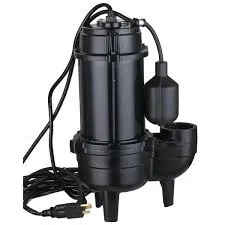Lao
- Afrikaans
- Albanian
- Amharic
- Arabic
- Armenian
- Azerbaijani
- Basque
- Belarusian
- Bengali
- Bosnian
- Bulgarian
- Catalan
- Cebuano
- Corsican
- Croatian
- Czech
- Danish
- Dutch
- English
- Esperanto
- Estonian
- Finnish
- French
- Frisian
- Galician
- Georgian
- German
- Greek
- Gujarati
- Haitian Creole
- hausa
- hawaiian
- Hebrew
- Hindi
- Miao
- Hungarian
- Icelandic
- igbo
- Indonesian
- irish
- Italian
- Japanese
- Javanese
- Kannada
- kazakh
- Khmer
- Rwandese
- Korean
- Kurdish
- Kyrgyz
- Lao
- Latin
- Latvian
- Lithuanian
- Luxembourgish
- Macedonian
- Malgashi
- Malay
- Malayalam
- Maltese
- Maori
- Marathi
- Mongolian
- Myanmar
- Nepali
- Norwegian
- Norwegian
- Occitan
- Pashto
- Persian
- Polish
- Portuguese
- Punjabi
- Romanian
- Russian
- Samoan
- Scottish Gaelic
- Serbian
- Sesotho
- Shona
- Sindhi
- Sinhala
- Slovak
- Slovenian
- Somali
- Spanish
- Sundanese
- Swahili
- Swedish
- Tagalog
- Tajik
- Tamil
- Tatar
- Telugu
- Thai
- Turkish
- Turkmen
- Ukrainian
- Urdu
- Uighur
- Uzbek
- Vietnamese
- Welsh
- Bantu
- Yiddish
- Yoruba
- Zulu
Telephone: +86 13120555503
Email: frank@cypump.com
ພ.ຈ. . 08, 2024 14:51 Back to list
slurry pump mechanical seal
Understanding Mechanical Seals in Slurry Pumps
Slurry pumps are critical components in various industries, including mining, wastewater treatment, and chemical processing. They are specifically designed to handle abrasive and viscous materials, making them ideal for transporting slurries, which are mixtures of solids and liquids. A key aspect of slurry pump operation is the mechanical seal, which plays a vital role in preventing leakage and ensuring efficient performance.
What is a Mechanical Seal?
A mechanical seal is a device that helps prevent the fluid pumped by the slurry pump from leaking out of the pump housing. It consists of two primary components a stationary part and a rotating part. The stationary part is affixed to the pump casing, while the rotating part is attached to the pump shaft. Between these two components, there is a sealing interface that is critical for maintaining a leak-proof environment.
The design and functionality of mechanical seals are crucial, especially in slurry applications where abrasive particles can cause wear and degradation. The seals are engineered to withstand the harsh conditions of slurry pumping, including high pressures and temperatures, as well as exposure to corrosive substances.
Importance of Mechanical Seals in Slurry Pumps
1. Preventing Leakage The primary function of mechanical seals in slurry pumps is to prevent the leakage of pumped fluids. Any leakage can lead to environmental issues, safety hazards, and inefficiencies in the pumping process. Effective seals protect not only the environment but also the operational integrity of the pump system.
2. Extending Pump Life By preventing leaks, mechanical seals help in reducing wear and tear on various pump components. They minimize the chances of contaminants entering the pump, which can lead to failures and costly repairs. As a result, high-quality mechanical seals contribute to the longevity of slurry pumps.
3. Reducing Maintenance Costs Mechanical seals that provide reliable performance can significantly reduce maintenance costs. Regular replacements and repairs can add considerable expenses over time. By investing in durable seals that can withstand the demanding conditions of slurry applications, companies can achieve substantial cost savings in the long run.
slurry pump mechanical seal

4. Enhancing Efficiency Efficient operation is vital for any pumping system. Mechanical seals that leak can lead to a drop in efficiency, resulting in increased energy consumption. A well-functioning seal ensures that the pump operates at optimal performance, maintaining the necessary flow rates and pressure levels.
Types of Mechanical Seals for Slurry Pumps
There are various types of mechanical seals suitable for slurry pumps, each designed to cater to specific operational needs
1. Standard Seals These are commonly used in less abrasive applications and are made from materials like elastomers that can handle moderate temperatures and pressures.
2. Heavy-duty Seals For more abrasive and severe conditions, heavy-duty mechanical seals are used. These seals are often made from advanced materials like silicon carbide or tungsten carbide, providing greater resistance to wear and corrosion.
3. Double Mechanical Seals In certain applications where leakage could lead to severe consequences, double mechanical seals are employed. These seals consist of two sealing interfaces, providing an additional layer of protection against leaks.
4. Soft Seals and Hard Seals Depending on the specific requirements, slurry pumps can utilize soft seals for flexibility or hard seals for durability, particularly in the presence of aggressive media.
Conclusion
In summary, the mechanical seal is a critical component of slurry pumps, ensuring leak-free operation and protecting the integrity of the pumping system. By preventing leakage, extending pump life, reducing maintenance costs, and enhancing efficiency, these seals play a crucial role in the overall effectiveness of slurry pumping systems. With various types of mechanical seals available, it is imperative for operators to select the right seal tailored to their specific slurry handling applications. Proper seal selection and maintenance can lead to improved performance and significant cost savings in slurry pump operations, making them an essential consideration for industries reliant on these powerful machines.
-
ISG Series Pipeline Pump - Chi Yuan Pumps | Energy Efficiency&Compact Design
NewsAug.03,2025
-
ISG Series Vertical Pipeline Pump - Chi Yuan Pumps Co., LTD.|High Efficiency, Low Noise, Durable
NewsAug.02,2025
-
ISG Series Vertical Pipeline Pump - Chi Yuan Pumps | High Efficiency, Low Noise
NewsAug.02,2025
-
ISG Series Vertical Pipeline Pump- Chi Yuan Pumps Co., LTD.|High Efficiency&Compact Design
NewsAug.02,2025
-
Heavy-Duty Mining Sludge Pumps - Wear-Resistant Slurry Handling
NewsAug.02,2025
-
Horizontal Split Case Pump with GPT-4 Turbo | High Efficiency
NewsAug.01,2025










